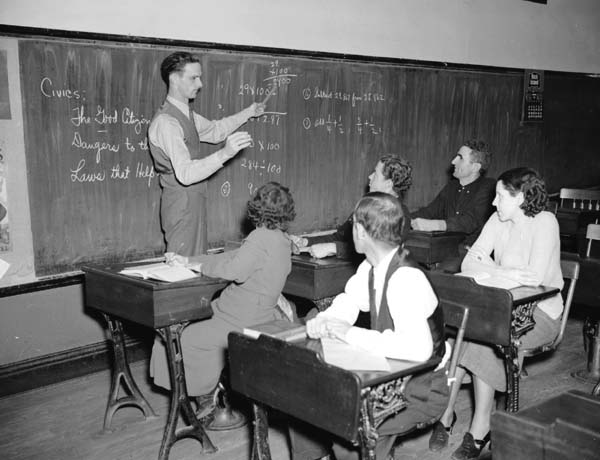A Guide to Deaf Education Master’s Programs
Outline
- Introduction
- What Are Deaf Education Master’s Programs?
- Why pursue a Master’s in Deaf Education?
- What Will You Learn in a Deaf Education Master’s Program?
- Core Subjects
- Practical Experience
- Choosing the Right Program
- Accreditation
- Specializations
- What to Expect After Graduation
- FAQs
- Conclusion
Introduction
Have you thought about ways that you could make an important impact on the field of education? If you’re driven to benefit others and have a keen desire to work with students who are deaf or hard of hearing, taking a master’s degree in deaf education might be the perfect option for you.
You may be asking yourself, “What exactly does this degree entail?” “How can it help me and my job?” and “What should I be looking for when selecting a program?” Don’t worry, I’ve got all the answers. Let’s take a look at everything you must be aware of about master’s degrees in deaf education programs.
What Are Deaf Education Master’s Programs?

We’ll start with the fundamentals. Master’s degrees in deaf education are master’s degree programs designed to prepare educators and specialists in the field of deaf education.
The programs aim to equip students with the talent to assist and educate students who are deaf or hard of hearing. Learn how to design efficient learning environments, employ specialized teaching techniques, and comprehend the particular challenges that face students who are deaf.
If you’re interested in making an impact in the lives of students with deafness, then this program is the perfect option.
What Do These Programs Typically Cover?
- Techniques for Communication Learn about different methods of communication, including the use of sign language and lip reading, along with assistive technologies.
- Education Strategies Learn to tailor your teaching techniques to satisfy the needs of students with hearing impairments.
- Cultural understanding Learn more about the deaf community’s values and culture.
Why pursue a Master’s in Deaf Education?
Perhaps you are thinking about why you should think about the possibility of a master’s in education for the deaf. Here are some convincing reasons:
Make a Difference
A master’s degree in deaf-blind education enables you to make a significant impact on the students living their lives.
You’ll help them achieve academically, and in their personal lives, it’s a rewarding experience. Imagine leading a student through an extremely difficult subject, only to see their eyes sparkle when they realize. That’s the kind of difference it’s possible to make.
Specialized Knowledge
This degree gives you a specialization that’s in demand. Institutions and schools are always seeking experts who are aware of the specific requirements of hard-of-hearing and deaf students.
Career Opportunities
If you earn a master’s degree in deaf-related education, it can open doors to many job pathways:
- Teaching Be the teacher of deaf and hearing-impaired students in secondary, primary, or special education.
- Consulting collaboration with institutions of education to boost their strategies and programs for students who are deaf.
- Advocacy Join groups that help the deaf community and work towards policy adjustments.
What Will You Learn in a Deaf Education Master’s Program?
Let’s take a look at what you’ll learn in your study.
Core Subjects
Your course will cover a variety of topics that are essential. Here’s a quick rundown:
- Techniques for Communication Learn about various methods of communication, like American Sign Language (ASL), as well as lip reading and making use of hearing aids and cochlear implants.
- Education Techniques Find out about various methods of teaching specifically adapted for hearing-impaired and deaf students. This can include adapting lesson plans with visual aids as well as using interactive methods of teaching.
- Deaf Cultural Understanding the culture of people who are deaf is essential. The study will explore the history of values, beliefs, and social customs of the culture of the deaf.
The subjects you study will provide an excellent foundation for both the practical and theoretical aspects of deaf education.
Practical Experience
Experiences that are hands-on are a major element of these programs. This is what you can expect:
- Classroom observations It is a chance to spend some time watching professional teachers in their classrooms. This helps you learn the different ways that teaching strategies are applied in real classrooms.
- Students Teaching The student teaching is the time to put your theory into the classroom. Students will teach classes under supervision, getting invaluable experiences and feedback.
- Fieldwork Engage in a variety of projects and internships that deal with real-world issues in deaf education. It could include working in conjunction with local schools, community organizations, or advocacy groups.
This experience in the real world is extremely valuable. It will help you build the confidence, talent, and confidence you need to be successful at your job.
Choosing the Right Program

Different master’s degrees are not exactly the same. Here’s how you can pick which one is the accurate program for yourself:
Accreditation
- Verify Accreditation Check accreditation: Ensure that the program you’re interested in is recognized by an accredited organization. This assures you that the course is of high quality and is recognized by employers as well as the other institutions of education.
Accreditation is essential in the event that you intend to seek certification or licensure in the near future.
Specializations
- Think About Your Passions Some programs offer specifications, like early school deaf secondary education and educational leadership. Consider your job goals and select the program that excellently suits your passions.
If, for instance, you’re looking to work with children of a young age and children, a program that has an emphasis on early education could be the desirable option. However, If you’re hoping for an administrative position or a leadership position, a program that has an emphasis on the administration of education could be better suited.
Program Format
- Online as opposed to. On-Campus Choose whether you’d prefer to attend classes on campus, online, or in a hybrid structure. Online courses offer flexibility for students who work and have commitments. On-campus courses focus on providing the traditional learning experience as well as more opportunities to network.
Cost and Financial Aid
- Know the Costs Learn about the cost of tuition and other costs related to the program. Some schools provide scholarships, aid for financial needs, or assistantships to help pay for the costs.
Be sure to consider the cost of all possible expenses and look into ways to get financial aid in order to find a feature that is within your budget.
What to Expect After Graduation
When you’ve finished your Master’s program in deaf education, you’ll be able to choose from several job possibilities and options. What you can expect to find:
Career Paths
- Teaching A lot of graduates end up becoming teachers in schools that specialize or in mainstream schools that have programs for deaf students. You could teach a variety of disciplines or concentrate on certain areas, such as speaking development and social abilities.
- Consulting You can work as a consultant to educational institutions, assisting them in boosting their procedures and curriculum for students who are deaf.
- Advocates and Policies Graduates are often part of organizations that help the deaf community and work on policy and advocacy as well as community outreach.
Further Education and Research
- Doctoral Degree Programs If you’re looking for academic or research-related jobs, you may consider getting a doctoral degree in education or another related area.
- occupational development Stay up to date with the latest developments and trends in the field of education for deaf people by attending seminars and conferences, as well as various other competent development options.
Your master’s degree will focus on providing the foundation needed for leadership positions within the industry. If you’re looking to manage initiatives in education as well as conduct research or lobby for changes in policy Your master’s degree can give you the chance to enter.
FAQs
1. What are the requirements to be able to apply for a deaf education master’s degree?
The majority of programs require the completion of a bachelor’s program with a focus on the field of education or another related area. Certain programs may also require experience working with deaf and hearing-impaired individuals, but this is different for each program.
2. What is the time frame to finish a master’s degree for deaf-blind education?
Typically, it takes two years of full-time studies to finish the program. Some schools provide part-time programs that can prolong the time. The hybrid and online courses may provide more flexibility.
3. Are there any online courses available?
Many universities offer hybrid or online courses. These are an excellent feature when you require flexibility because of commitments at work or in your personal life. Online courses add the same high-quality instruction as campus-based programs, but with the ease that comes with remote learning.
4. What is the price of an education master’s degree in deafness?
Costs differ based on the school and whether you’re taking classes in person or online. The tuition fees can be as low as several thousand to two thousand pounds. Make sure to inquire about each program for more specific information and research the options for financial aid.
5. Can I study while I study?
It’s possible, particularly with part-time or online programs. But you must be ready for a busy schedule, especially if you’re participating in student placements or teaching. The balance between work and studying requires the ability to manage time and also organizational knowledge.
Conclusion
A master’s degree in deaf-blind education isn’t just a diploma; it’s a potent tool to make a significant contribution to the world of education. If you’re planning to instruct, advise, or be a spokesperson, this program will give you the skills and knowledge that you need to obtain your goals.
When you select the accurate program and focus on your job goals, you’ll be able to create an enjoyable job that makes an impact on the lives of deaf and hard-of-hearing students.
If you’re looking to take the next step and dive into a rewarding career, you should consider getting a master’s in deaf studies. It’s an opportunity to not only improve your abilities; however, but it will also help open the door to an array of thrilling job possibilities.




